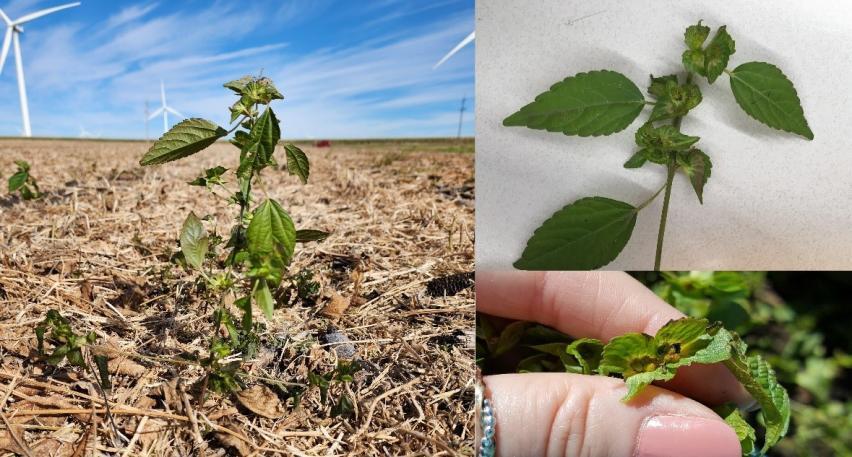Farmers are encouraged to contact the department of agriculture if they see Asian copperleaf
By Diego Flammini
Staff Writer
Farms.com
The Iowa Department of Agriculture and Land Stewardship is asking farmers to help track an invasive weed.
Farmers are encouraged to contact the department of agriculture if they see Asian copperleaf.
This weed, native to China, Japan and other regional countries, was first discovered in Black Hawk County corn field in 2016. In 2022, Iowans found the weed in a Grundy County soybean field, about 30 miles away.
Both times, farmers discovered the plants during harvest.
“In both fields, several dense patches of the weed were present throughout the field, indicating the weed was in the field for several years before being identified,” Meaghan Anderson, a field agronomist with Iowa State University, wrote on Oct. 10.
Asian copperleaf is a threat to row crops, but little is known about how much yield the plant can rob from crops.
Prior to these discoveries, the only documented infestation of the plant in North America was in New York City.

Asian copperleaf (Iowa State University photo).
Asian copperleaf belongs to the spurge family but doesn’t have milky sap associated with other spurges.
The plants in Iowa were shorter than 18-inches-tall but the plant can grow up to three-feet-tall.
A telltale identifier the plant is Asian copperleaf is the bracts beneath the flowers. The bracts will appear circular or heart-shaped with a dentate margin.
The USDA conducted a weed risk assessment for Asian copperleaf in 2012.
The weed “did not show any strong invasive or weediness characters,” the assessment says. “Our uncertainty analysis indicated that 57.2 percent of the simulated risk scores resulted in conclusions of “High Risk,” while all others were “Evaluate Further.””
Anyone who spots Asian copperleaf is encouraged to call Iowa Department of Agriculture and Land Stewardship at 515-725-1470 or e-mail entomology@iowaagriculture.gov.